|
My sacrifice, O God, is a contrite spirit; a contrite, humbled heart, O God, you will not scorn.” – Psalm 51: 19 During my graduate program at The Catholic University of America, I had a chance to take a class on the Psalms. Not only did I learn a lot of information about the psalms, but also my perspective on prayer changed. The professor taught us about the humanity of the psalms: each one is riddled with human emotion and experience. The psalms show us that our prayers to God do not have to be perfect. Rather, our prayers should be honest because we are placing our trust in Him. This Lent, I decided to pray more with the psalms. Over the past few weeks, I’ve done this by praying the Liturgy of the Hours and doing Lectio Divina. Praying with and contemplating the psalms this Lent has really helped deepen my relationship with God. It has also helped me in my role as a Youth Minister. So far, God has reminded me of two principles that we should remember while reading the psalms: 1) the psalms are a mirror to your soul and 2) You should allow the psalms to be a guide to your life. One psalm that the Church uses throughout the season of Lent is Psalm 51. Psalm 51 is titled “The Miserere: Prayer of Repentance” and the first two verses tell us that this prayer is the prayer David prayed after the prophet Nathan had told him he had sinned (cf 2 Kings 11-12). By praying this psalm throughout the season of Lent, we are reminded how much we are in need of God’s mercy. No matter what we’ve done or what we will do, God always calls us back to himself. He constantly invites us to repent for our sins and be reconciled with him. God’s mercy awaits us in the Sacrament of Reconciliation. We are all sinners. By using Psalm 51 as a mirror to our own souls, we know that we are in need of repentance. Through the Sacrament of Reconciliation, the Lord can wash us so that we can become “whiter than snow” (Psalm 51:9) Psalm 51 is also a great prayer to guide a Christian’s life. We are imperfect beings living in a broken world, and we encounter sin every day. It is only through God’s abundant compassion that he blots out our sins. Verse 12 says: “A clean heart create for me, God; renew within me a steadfast spirit.” As Christians, we are called to repentance and conversion. God always calls us to allow him to change our hearts to bring us closer to his own heart. By continually offering our own hearts to him, God will do great things throughout our lives. Lent is a time of repentance and turning our hearts back to God to prepare for Easter. Through praying with Psalm 51, we can be reminded of our own brokenness. We can also be reminded to offer our heart to God in every prayer and action that we do in order to allow him to create in us a clean heart. Question for Reflection: How can you pray with the psalms this Lent? Choose one psalm this week to reflect on.
0 Comments
Recently, I attended a marriage preparation weekend with my fiancé. We learned a lot about each other and grew in love and appreciation for one another, but something we discovered over the weekend was the difference in how we pray. We are both faith-filled people who serve the Church in a variety of ways, but we had never really thought about the ways we pray. We had especially never considered praying together as a couple…or so I thought. Over the weekend, the couples who shared their stories kept talking about prayer together, and it made me want to have that in our relationship, too. I thought about how my prayer life is full of journaling, talking with other faith-filled gal pals, reflection, song, and giving thanks. I learned that my fiancé’s prayer life was found primarily in the Mass and when he truly needed something. Then I thought about how we go to Mass together each week and make it the high point of the day. Turns out, we have been praying together this whole time—in the Mass! For us, going to Mass is not just something “to do” on Sundays, it’s the beginning of a new week with Christ in the Eucharist, living out His love for others through prayer and witness.
All this thinking about prayer got me asking: how many other ways are there to pray? Prayer is a funny thing. It’s not like math with a specific algorithm to follow in order to get the answer. Prayer is done by adults and children, men and women, healthy and sick, in good times and in bad, all across the world. Prayer is so diverse and can actually be simple to do. Our Catholic faith has provided us with prayers to say to God, songs to sing and listen to, quiet to listen for God’s voice, and a chance to meet him in the Eucharist at Mass. Jesus himself taught his disciples to pray when they asked him, and he left us the Our Father as a result (Matthew 6: 9-13). He wanted us to teach others these words because they cover everything you might need to say. Jesus said, “This is how you are to pray: Our Father in heaven, hallowed be your name, your kingdom come, your will be done, on earth as in heaven. Give us today our daily bread; and forgive us our debts, as we forgive our debtors; and do not subject us to the final test, but deliver us from the evil one.” Through these few words, we can become closer to God and more dedicated to living the Gospel each day. Jesus also left us with the Mass. Mass is the place where my fiancé and I first began our relationship, the place we will continue to go on a regular basis together, and where our future children will experience the presence of Christ in the Eucharist. For those who may not be familiar with the structure of the Mass, it is separated into two major parts: the Liturgy of the Word and the Liturgy of the Eucharist. Within these two parts, there are various prayers and belief statements like the Responsorial Psalm and the Nicene Creed. The “source and summit of Christian life” is the Eucharist, and it comes after we have heard the Word, or the scripture readings (Lumen Gentium, 11). Together, these two parts help us become witnesses of the faith and of God’s love for others. For some, Mass is not where they experience deep prayer and closeness to Christ like my fiancé does. Some feel close to Christ in nature and through wonder and awe. Some find God in the quiet reflection of their day. Others pray each day with a Rosary, Liturgy of the Hours, or other conventional prayers. Personally, I like to switch up my prayer routine and experience different forms of prayer. Prayer is amazing because we have so many ways we could pray and yet, no matter which way we choose in that special moment, we are still opening our hearts to God. In prayer, we are creating a connection with God. This is such a complex concept, talking with our Creator, but so simple to do! Let us close in a simple but powerful prayer: Glory be to the Father, and to the Son, and to the Holy Spirit, as it was in the Beginning, is now, and ever shall be, world without end. Amen. Question for Reflection: What are a few ways to incorporate communal prayer into your spiritual routine? If you are in a relationship with a significant other, reflect upon what ways you pray together. Click here for more resources on Prayer and Catechesis. “She said yes!” is commonly heard in engagement stories, echoing the excitement and joy of making the decision to have one’s life forever complemented with another in marriage. As we prepare to celebrate the Solemnity of the Annunciation on Saturday, the Church rejoices in Mary’s acceptance of God’s place for her in His divine plan of the salvation of mankind. Of course, Mary’s “yes” to God is not the only such instance in Scripture; on the contrary, each protagonist’s story within its pages involves his or her responding to the will of God throughout history, from God’s command to “be fruitful and multiply” to Adam and Eve through his instruction to the exiled St. John the Evangelist to “Write, therefore, what you have seen, what is now and what will take place later.” Just like each person in Scripture, we too can share in the delight of accepting God’s will for us through our faith and the surrendering of our personal desires and wants to Divine Providence. Every book of the Bible recounts at least one instance of God calling a prophet, judge, king, or another figure, no matter their status, to a higher purpose. I particularly enjoy the story of the boy Samuel, whom God called three times before the future judge and prophet, finally understanding Who kept waking him, answered. All of these accounts are more than nice stories—they serve to illustrate the different ways of answering God’s call as well as how God continues to guide us after we answer. The biblical theme still rings true today: “I have called you by name, and you are mine.” On the occasion of the Annunciation, Mary’s “yes” undoes Eve’s “no” to God. Through Mary, the Word was made flesh and she became the new “Mother of the Living” (CCC 489). This motherhood extends to us all! As a result of Mary’s “yes,” she became a tabernacle of the living God now made man. Christ’s complete embrace of humanity during His earthly ministry still affects us today. We are called to allow Him to more fully enter into our lives just as He did in the Virgin’s womb. By creating space for Christ, as Mary did, we are enabled to fully surrender to the Divine Will; our “yes” to God can then echo Mary’s crucial response, “Behold, I am the handmaid of the Lord. May it be done to me according to your word.” How shall we respond? At the Archdiocese of Washington’s Rite of Election this past month, I was blessed to observe over a thousand adults, teens, and children be presented to Cardinal Wuerl in order to be baptized or confirmed as Catholics in the Archdiocese of Washington this Easter. They, like Mary, have said “yes!” to God’s invitation. It’s a beautiful witness to see the participants’ formal expression of their desire to become Catholic before their loved ones, sponsors, and the Church. The Rite of Election kicks off a final period of intense spiritual preparation much like our experience of Lent. This call to conversion, Donald Cardinal Wuerl noted, “is a visible sign that women and men, young and old, from all walks of life, are continuing to respond to our Lord’s invitation: ‘Come, follow me.’” As baptized members of Christ’s Body, we are called to offer our support, love, and prayers for these catechumens and candidates as each continues his or her faith journey, that all may strive to remain close to the Lord Who has called them to Himself. Our “yes!” does not occur in a vacuum. Even the already baptized are called to be a light for each other as each of us experiences darkness in our lives. No matter our insecurities or doubts, no matter our past failings or unworthiness, God still continuously calls to us, ever lovingly, ever patiently, ever gently, ever earnestly. Mary had her own questions when the archangel Gabriel dramatically announced God’s plan for her. If you’re like me, you want all the details before making a decision! But, as we read throughout scripture, one’s trust in God is never misplaced. God can—and does—do great things through us if only we allow ourselves to be like “a little pencil in the hand of a writing God.” May we, then, always share the Good News of Christ’s Resurrection, the hope that we share as we receive Communion, as we journey to the Cross, and as we profess—and experience—God’s love. By the grace of God and the support of each other, may we, at every moment of our lives, join with the whole Church and the heavenly host to praise God for His mercy and goodness: “‘Our Savior, Jesus Christ, has destroyed death, and brought us light and life!’ No wonder we [reply], ‘Alleluia!’” When was the last time you thought about St. Joseph? For many, he is a shadowy figure. And yet, he is recognized as the "protector" of the Church. His feast day is March 19th. However, we celebrate it this year on the 20th because the 19th lands on a Sunday. What's your image of Joseph? Is he young or old? Is he alone or with someone? Is he working or sleeping? Is he rich or poor? Is he strong or weak? We invite you now to clear away all those images in order to see him for the first time. Let's meet Joseph anew, as he is presented to us in the Gospel of Matthew at the birth of Jesus. Of course, the best thing to do is to pray with Matthew 1: 18-25. Here’s the cliff note version: Mary and Joseph are engaged. She is expecting. He intends to divorce her quietly but learns, in a dream, that she is carrying a son who will "save his people from their sins" (Matthew 1:21). Joseph is told to accept Mary as his wife and name the child Jesus. In this passage, we see four qualities in Joseph - compassion, righteousness, fidelity, and decisiveness - that make him a saintly man and a role model for us today. Imagine how Joseph felt about Mary's pregnancy. The marriage customs of his day were much different than ours. Were they "in love" or was the engagement arranged? Perhaps Joseph felt more hurt than angry; or disappointed given Mary's natural innocence. In any case, he responded with compassion; he did not want to see her hurt. He did, however, want to do what is right. While he never says a word, Joseph's actions continually said "yes" to God's will. He takes Mary into his home as his wife. He honors Mary's special relationship with God by not having "relations with her until she bore a son" (Matthew 1:25). He claims Jesus as his son by naming him. Joseph lived a quiet fidelity - expressed in action rather than words. A kind-hearted man, accepting the mystery of salvation entrusted to him as his God-given purpose, his vocation, Joseph adopts Jesus and raises him as his own. He protects him, teaches him, and loves him. Joseph's love for Mary and Jesus sharpened his awareness of the forces around them. When Herod threatens the life of Jesus, Joseph leaps into action leaving that night for Egypt. When the threat is gone, he brings Jesus back to his people. When he realizes some threat remains, he settles in Nazareth thus fulfilling a prophecy. His decisive action was always for the good of Jesus and Mary. As we get close to Joseph, we meet a kind-hearted man, walking humbly with his God, as he accepts, protects, and raises Jesus so he can "save his people from their sins." He plays a quiet, but essential, role in salvation history. Perhaps we, too, have a quiet role to play in salvation history. Perhaps Jesus is relying on us just as he relied on Joseph. Compassion, righteousness, fidelity, and decisiveness can help us live out our role just as they served Joseph. St. Joseph, pray for us.
“Blessed be St. Joseph, her most chaste spouse” — these words, taken from the Divine Praises of our Church (a prayer that is often used at the end of Eucharistic Adoration), remind us of the important role that St. Joseph plays as the patron of the Universal Church. St. Joseph is the foster father of Jesus, “most chaste spouse” of Mary, but he is also our guide. There are exactly zero words of St. Joseph recorded in all of scripture, yet the role that he plays is not to be underestimated. He teaches us how to live in obedience, persevere in holiness and chastity, and love well. The obedience that this holy patron showed to the will of God is nothing short of extraordinary. He did this first by accepting the message of the angel to take Mary as his wife, then by protecting his family as he fled with them to Egypt, but most importantly, in those quiet, unlogged hours at home with Mary and Jesus in Nazareth. Although his life did not unfold as he would have anticipated, his obedience and docility to God’s will allowed him to play a crucial role in the life of Christ and ultimately in the story of our salvation. St. Joseph’s perseverance in holiness and chastity sets a very clear example before us. His life is a compelling reminder for us that to do the will of God, we need only be obedient to the present moment and faithful to the higher calling that is ours by nature of our baptism. In a world that sees chastity as outdated and nearly impossible, he reminds us that pursuing it is not only important for our own lives of virtue, but salvific for others. St. Joseph also teaches us how to love well. The gentle striving of St. Joseph, both as he led Mary and Jesus, and now as he leads our Church, can be summed up by these words of St. Josemaria Escriva, “God always asks more: His ways are not the ways of men. St. Joseph, more than anyone else before or since, learned from Jesus to be alert to recognize God’s wonders, to have his mind and heart awake.” Several years ago, a spiritual director suggested that I start to pray every day to St. Joseph for my future husband. With the following prayer, I beg his intercession to not only allow me to persevere in obedience and chastity, but also with the sure knowledge that he will protect my future husband and family. Guardian of virgins and father, St. Joseph, to whose faithful custody Innocents itself, Christ Jesus, and Mary, Virgin of virgins was committed; I pray and beseech thee by each of these dear pledges, Jesus and Mary, that, being preserved from all uncleanness, I may with spotless mind, pure heart, and a chaste body, ever serve Jesus and Mary most chastely all the days of my life. Amen. May the intercession of St. Joseph allow us to persevere in obedience, chastity, and love! *Ite ad Joseph is Latin for “Go to Joseph” and admonishes us to turn to St. Joseph’s intercession and guidance. Question for Reflection: Following the example of St. Joseph, how might you grow in your ability to be obedient to the present moment? Prayer, fasting, almsgiving. At the heart of these Lenten pillars, we hear a call to go out and, as Pope Francis reminds us, encounter. In our prayer, we lift up the needs of our global family. Through our fasting, we empty ourselves, giving up something to make room for the needs of another. And in our almsgiving, we pour out our own gifts and resources so as to lift up those who are in need, near and far. Lent is a time to remember that we are all part of God’s one human family, and that means we have responsibilities to one another. And we come to understand and fulfill those responsibilities by building a culture of encounter. To build a culture of encounter, we must start from within ourselves, from our personal call to discipleship. God knows our true selves, desiring that we, too, discover the person God has called us to be. Through prayer, we encounter ourselves before God; we see ourselves as God sees us. And we realize that God delights in every member of our human family because God is truly present in each of us. Jesus reminds us, “You shall love your neighbor as yourself.” To love another, we must come to know our own selves, our own hurts and triumphs, our own joys and challenges. What begins as an interior encounter necessarily goes beyond ourselves, challenging us to live in solidarity with people we may never meet. How can we hope to go to the margins, to accompany those who are most vulnerable and in need, if we haven’t properly wrestled with our own vulnerability, our own need? Only then can we recognize that each person we encounter can share with us some unique insight about our world, about ourselves and, ultimately, about our God. We meet Jesus in the desert, a time of introspection and discernment before he begins his ministry. What has he gone there to accomplish? Luke tells us that Jesus “was led by the Spirit into the desert for forty days, to be tempted by the devil.” There he fasts and prays—and the Enemy takes that opportunity to tempt Christ with those temptations we each encounter daily: material comfort, honor, and pride. Jesus responded by trusting in God, by emptying himself of pride and power and ultimately rejecting the invitations of the Enemy. We, too, can better understand where we are broken and turning away from whom we are called to be by following Jesus’ example and encountering ourselves through prayer and fasting. We may not go into a desert for forty days, but we can and should take the forty-day invitation of Lent as an opportunity to reorient our lives, examining how we are living in relationship with God and our neighbors. That might mean coming to terms with troubling or disappointing truths. Can we, like Jesus, radically reject the offering of power, of influence? We all want glory, praise, a pat on the shoulder, but as Jesus turned away from the Enemy’s offering, so too must we. And then, where do we turn? We go to the margins with humility and compassion. Only by encountering ourselves can we then encounter our neighbors and build up that culture of encounter. This Lent, let us commit ourselves to encounter one another anew, to encounter Christ anew. Let us commit ourselves to giving more readily and more freely—whether of our time, our resources, or our finances. Let us commit to forty days of transformation, ready to encounter Jesus in the desert, and to commit to bearing whatever fruits that encounter sows. Continue reflecting with CRS Rice Bowl by downloading their app or visiting their “Stations of the Cross Digital Retreats” page. You may have heard this phrase or a deviation of it before: while St. Ignatius referred to, “Seeking God in all things,” St. Vincent Pallotti taught, “Seek God in all things, and you will find God in all things.” Both convey the same message. While this message can be an easy one to remember, putting it into practice is a different story—even Jesus’ disciples had trouble with this! If we look at the story of the disciples on the road to Emmaus, it was only after Jesus had traveled along the road with them, sat down, and broke the bread that they recognized Him (cf Luke 24:13-32). If the disciples could struggle to recognize Christ, how many times in our lives have we also failed to recognize Him in a person, place, or event?
This past summer, I undertook the great challenge of attempting to recognize Christ in my everyday life. Having been blessed with the opportunity to attend World Youth Day in Poland, I, for the first time, felt like I was truly experiencing a culture that was authentically Catholic. Everywhere I went, I found myself able to identify Christ present in my surroundings. Throughout the trip, I worried that the enthusiasm with which I found it easy, even second nature, to exhibit my faith would go out like a lamp when I landed and departed from my group in the US. I knew it did not have to, nor should be that way, but in the back of my mind this was how I felt. I was compelled to not make this happen. I knew I needed a community in which I could sustain and share the joy of seeking Christ in all things. Enter the Knights of Columbus Council of Catholic University. Having been recently elected Grand Knight of the Council, I knew I had many decisions to make, one of which included coming up with a theme for the upcoming fraternal year. While flying home from Poland, it dawned on me: what better theme than what I had just experienced? After making my suggestion to the chaplain and a few others, the theme of “Seeking Christ in All Things” was announced to the Council during our first business meeting in the fall semester. Following this announcement, the Council sought to incorporate the new theme into its fraternal programs, beginning with the reflection shared by the Council’s Lecturer and continuing with our Chaplain’s reflections. There was much discussion about our theme, “Seeking Christ in All Things.” Discussion is important, but as Knights, we must also give witness to our faith. The Knights at The Catholic University of America have sought Christ in our lives and invited others into this encounter with Him in various ways. Some examples that come to mind center around our weekly “Knights Mass” where, together with our campus community, we attend daily Mass once a week together. Afterwards, we pray the rosary together and invite others to join us. Knights from our Council also lead and are involved in numerous activities through our university’s campus ministry. These programs include a weekly homeless food run, tutoring at a local after-school program, and countless liturgies on campus and in our neighborhood in Washington, D.C. In addition, several members of our Council will be doing international and domestic mission trips during our spring break. You do not need to be a Knight of Columbus to encounter Christ or bring people closer to Him. As we begin Lent, I invite you to take the time to look for Christ in your life. Strive to pray wherever you are, not just in church on Sundays. Go volunteer and recognize Christ in those whom you serve. Look for the unconventional places that Christ may in your life. Find the beauty that is there and never let it leave your sight. Daniel Hackenjos serves as Grand Knight of the Knights of Columbus Council of Catholic University where he studies elementary education as an undergraduate. Some of the extensive spiritual formation programming of the CUA Knights is in the March 2017 edition of Columbia, the official magazine of the Knights of Columbus. “They were to be brought into the arena just as they were. Perpetua then began to sing a psalm.” -The Passion of Sts. Perpetua and Felicity What psalm did you sing, Perpetua, when you were thrown into the arena to face the wild beasts? I can’t help but wonder as I reread the martyrdom account of Sts. Perpetua and Felicity, whose feast we celebrate today. The calm and joy of both women astounds me. What psalm would one sing in the face of death? And how could one find the courage to even sing? Martyrdom contradicts everything we are told to value in this world. It entails giving without reserve, sacrificing all, even the greatest good, which is life itself. And yet the martyrs are a stark, beautiful, and perhaps even uncomfortable proof of what sacrificial love can look like. They help us to readjust our eyes to the eternal. “Who are the martyrs?” Pope Francis asked in his message for the beatification of the Spanish Martyrs of the Twentieth Century. “They are Christians won by Christ, disciples who learned well the meaning of ‘loving to the end’ that took Jesus to the Cross.… Christ goes before us in love; the martyrs have imitated him in love to the end.” We read in the first letter to the Corinthians just what we are called to when we are called to love. “Love is patient, love is kind,” he begins. But what else does Paul write? That love “bears all things, believes all things, hopes all things, endures all things. Love never fails.” The martyrs, such as Perpetua and Felicity, give testament to this love. What sets Perpetua and Felicity apart for me is their role in the Church not only as martyrs, but as women, specifically mothers. The account of their martyrdom includes text from Perpetua herself and is one of the few documents we have from the early Church of lay women martyrs. How beautiful that we celebrate the witness of these two women on the same day. Together, they give us a rich portrayal of grace by experiencing suffering with joy and remaining perpetually faithful to Christ. The account of their martyrdom notes that even those who had come to watch the martyrdom shuddered “seeing one a tender girl, the other her breasts yet dropping from her late childbearing.” As a new mother myself, re-reading their account makes their sacrifice all the more visceral. Both Perpetua and Felicity lost everything by human standards to face their martyrdom: family, wealth, possessions, children. Yet both gain everything by God’s standards: eternal life resting in the beatific vision. Both women live up to their names. Perpetua remains steadfast to her faith. While Felicity, which means intense happiness, joins the Christian martyrs with joy and serenity, praising God for the early birth of her child so that she could join her companions in martyrdom. The example of these women seems baffling to our world. How could a mother give up her child? How could a person give up wealth, possessions, titles, security? Apart from God, these sacrifices make no sense. So what can we learn from the martyrs? “The Holy Fathers say: ‘Let’s imitate the martyrs!’” Pope Francis continued in his message. Does this mean we must forfeit our lives, give up everything, if we are to follow Christ? Some have been and still are called to give their physical lives for the Christian faith. However, I think we can all live out martyrdom in many different ways. Pope Francis expands on this understanding. He continues, “We always have to die a bit to come out of ourselves, of our egoism, our wellbeing, our sloth, our sadnesses, and open ourselves to God, to others, especially the neediest.” In other words, we can join in the sacrifice of the martyrs, and of Christ for that matter, each and every day by offering up our own prayers and hardships—by dying to ourselves first and foremost. While we may not be called to give our physical life for our faith, we are always being challenged to give up anything in our lives that is not love. Lent is a particularly intense time of this dying to self, or mortification, in order to grow closer to our neighbor and to Christ. Additionally, we are called to endure this process of “everyday martyrdom” with joy and hope—something Perpetua in particular models beautifully with her singing. Let us follow the advice of St. Augustine as we continue our pilgrim journey: “Sing as wayfarers do—sing but continue your journey. Do not grow tired, but sing with joy!” Question for Reflection: In what ways can you die a little to yourself this Lent? If you could only take three things on a desert island, what would you bring? A common question at parties, dates, and job interviews, it’s not so different from what we might ask ourselves during the season of Lent. Lent, as our Catechism says, is “a span of forty days when the Church unites herself each year to the mystery of Jesus in the desert.” Just as the “desert island” question invites us to stop and consider what we really need and want in life, Lent invites us to consider our truest desires, what matters most, when it comes to uniting ourselves to Christ Jesus. To help us answer this question during Lent, our Catholic tradition gives us three spiritual keys, known as “penitential practices,” namely, Prayer, Fasting, and Almsgiving. Prayer Before deciding what to “give up” during Lent, first “pick up” a new way to pray. Be specific: pick a time, place, and form of prayer. Don’t commit to more than you can do, but don’t be afraid to stretch yourself some. Lent primarily focuses on the practice of penitential prayer, humbly acknowledging our sins with sorrow and contrition, and turning our hearts back to God’s forgiveness and mercy. One example found at most parishes is the Stations of the Cross, usually hosted every Friday during Lent as a way of reflecting on Christ’s Passion and death. Other daily spiritual exercises might involve reciting the Seven Penitential Psalms, or making a heartfelt Examination of Conscience and Act of Contrition. Don’t forget Lent is a powerful time to receive the Sacrament of Penance (also called Reconciliation, or Confession). Penitential prayer isn’t meant to leave us discouraged, but should increase our desire to love and serve God. The Psalmist sings, “As the deer longs for streams of water, so my soul longs for you, O God. My soul thirsts for God, the living God” (Psalm 42:2-3). Lent is a kind of “spiritual desert” that highlights our thirst for God, which may lead us to experience what the saints of our Church call “dryness in prayer,” times when we lack feelings of comfort and consolation. Rather than a sign that God isn’t listening, as Mother Angelica and others have described, dryness in prayer can be a gift and invitation to find our deeper satisfaction in God alone. In the words of Msgr. Charles Pope, dry and difficult prayer teaches us to seek not the consolation of God but the God of consolation. Fasting Fasting is the spiritual practice of voluntarily abstaining from food or some other bodily need or pleasure (now we can talk of “giving something up”). Fasting is rooted in our Church’s scripture and tradition, especially in imitation of Jesus who fasted for forty days in the desert (Matthew 4:2). While the Church only asks members to fast from food on occasion, I’m convinced fasting is more relevant than ever as we live in constant temptation of becoming more gratified while less grateful, more satiated while less satisfied. Fasting can be a practice of slowing down. This can mean we intentionally consume and do less, thus allowing God to speak to our souls with less interruptions from the myriad distractions and lesser goods that demand our time and attention. Fasting works to curb our appetites—for food and drink, yes—but also excess information (news and status updates), noise and visual stimulation (TV, video games), so as to redirect our thoughts and desires for God and restore relationships with those near us. Spend some time in prayer considering what things or activities God is calling you to fast from. Almsgiving When asked, “How much money is enough” Industrialist and oil magnate John D. Rockefeller famously replied, “Just a little bit more.” The practice of almsgiving, on the other hand, can actually be freeing—showing that we can be happy with a little bit less. John the Baptist instructed his followers, “Whoever has two tunics should share with the person who has none. And whoever has food should do likewise” (Luke 3:11), and Jesus warned his disciples of putting stock in material possessions (Luke 18:18-30). Almsgiving turns the spiritual fruit we inwardly gain through prayer and fasting outward into material fruit shared with the poor and those in need. One year, I chose one item a day I owned (article of clothing, book, can of food, etc.) to set aside to give to the poor through my local church’s St. Vincent de Paul Society or food pantry. I was shocked (and a little embarrassed) by how much I owned but never used. The point isn’t spring-cleaning or making room in the closet for new summer fashions, but to make room in our heart for the poor and to de-clutter the way that leads to the Kingdom of God. This Lent, I invite you to pray about incorporating these pillars into your forty-day spiritual journey in the desert. |
Details
Archives
July 2024
Categories
All
|
About |
Media |
© COPYRIGHT 2024 | ALL RIGHTS RESERVED

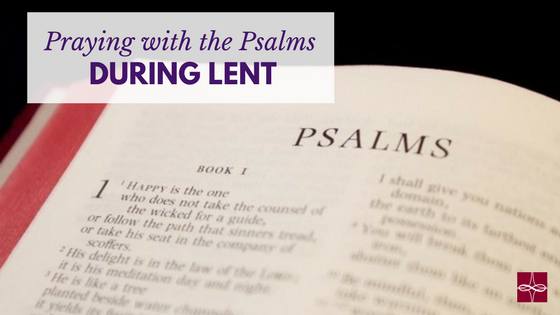

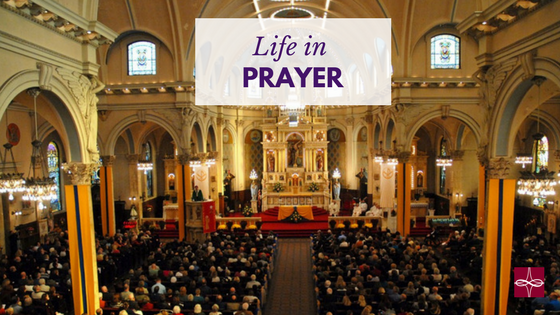



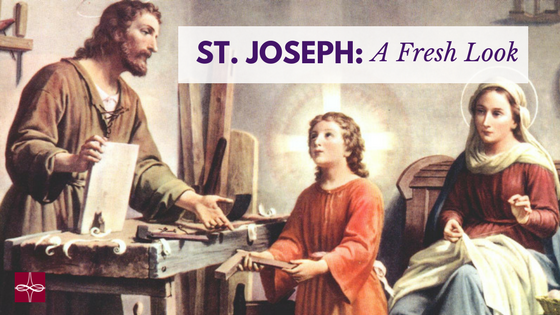

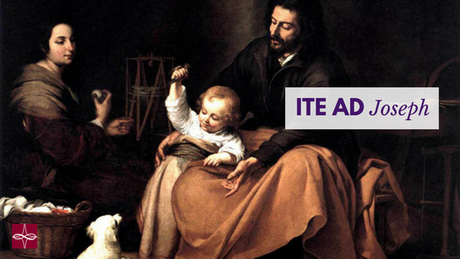

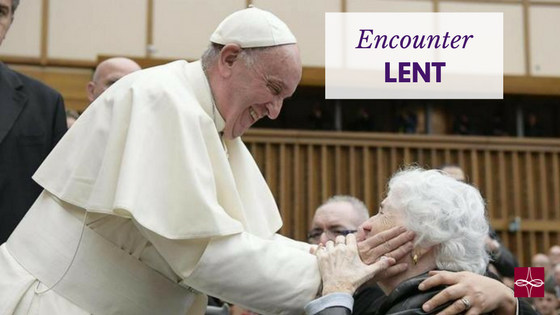

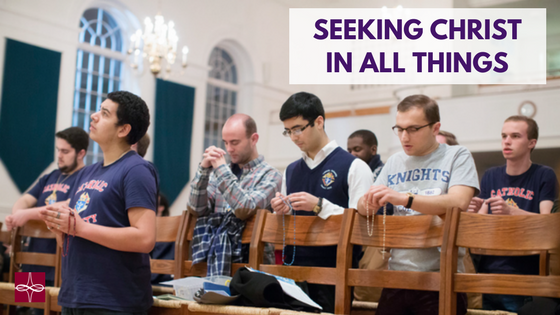
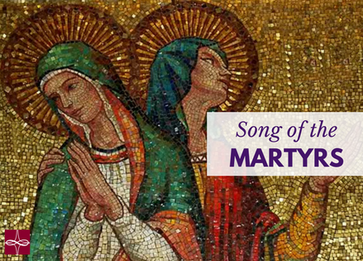

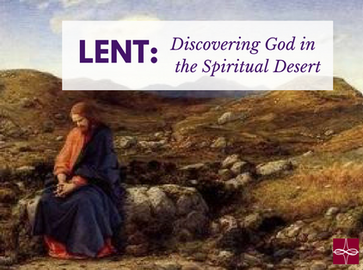

 RSS Feed
RSS Feed